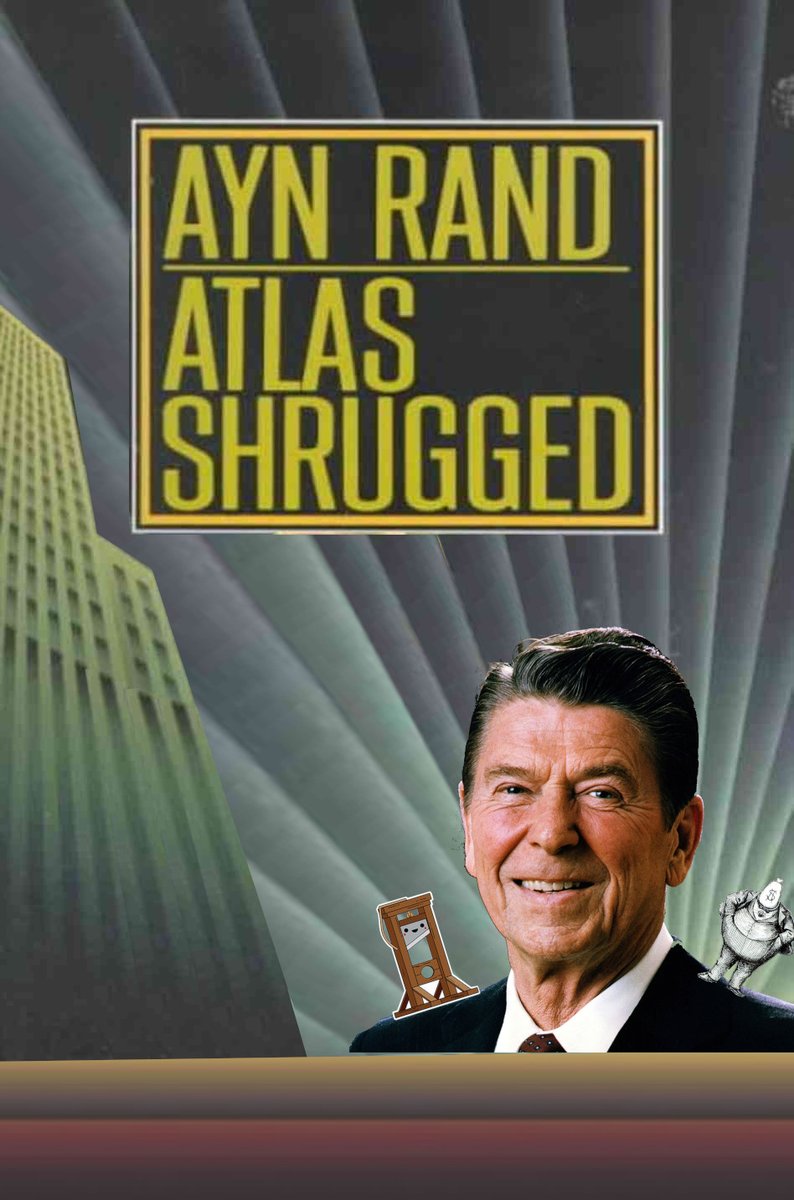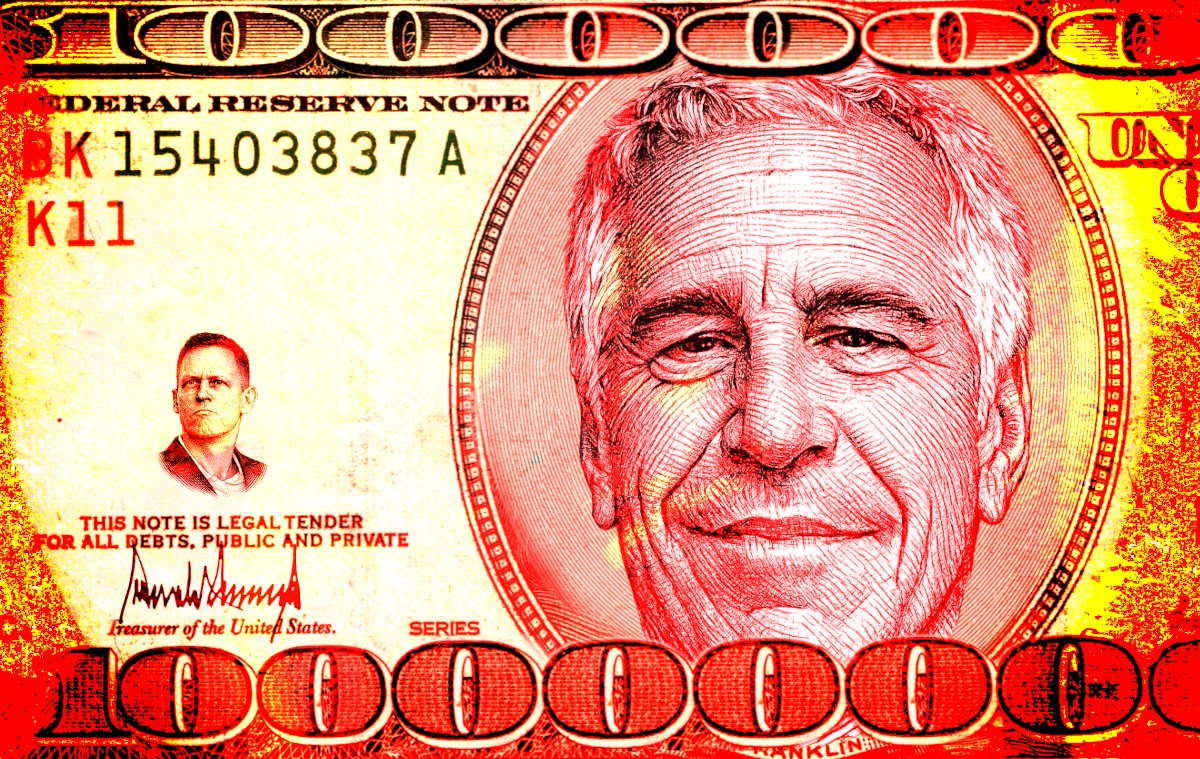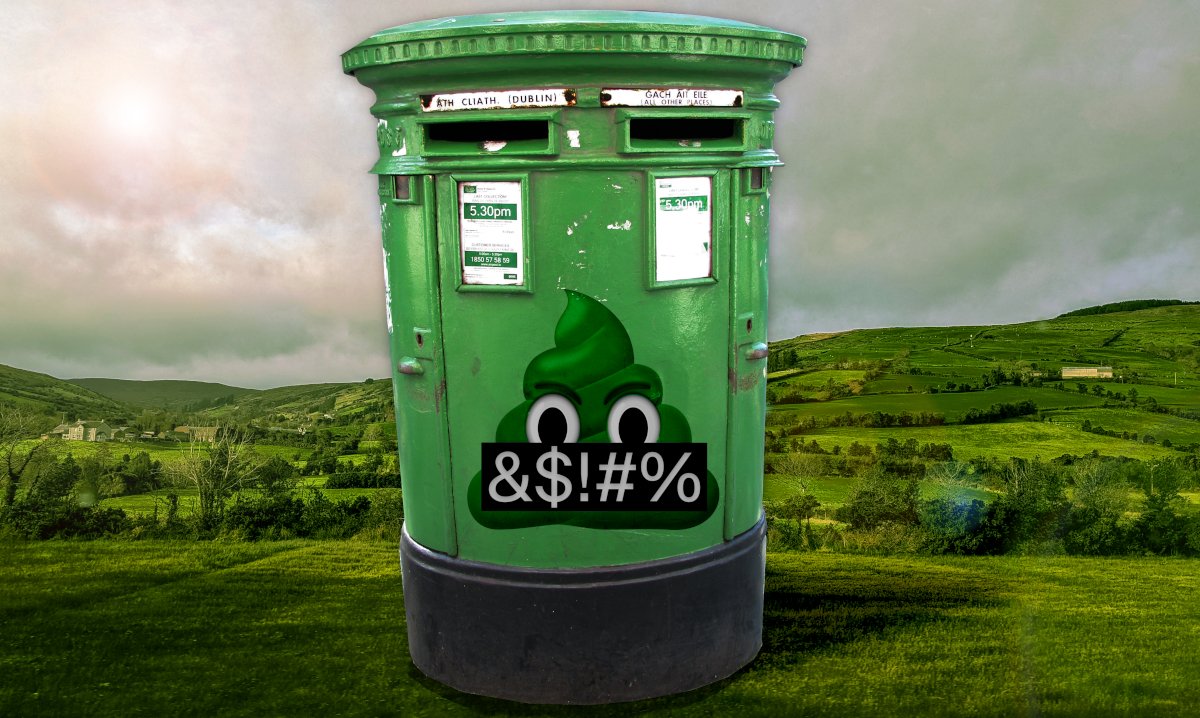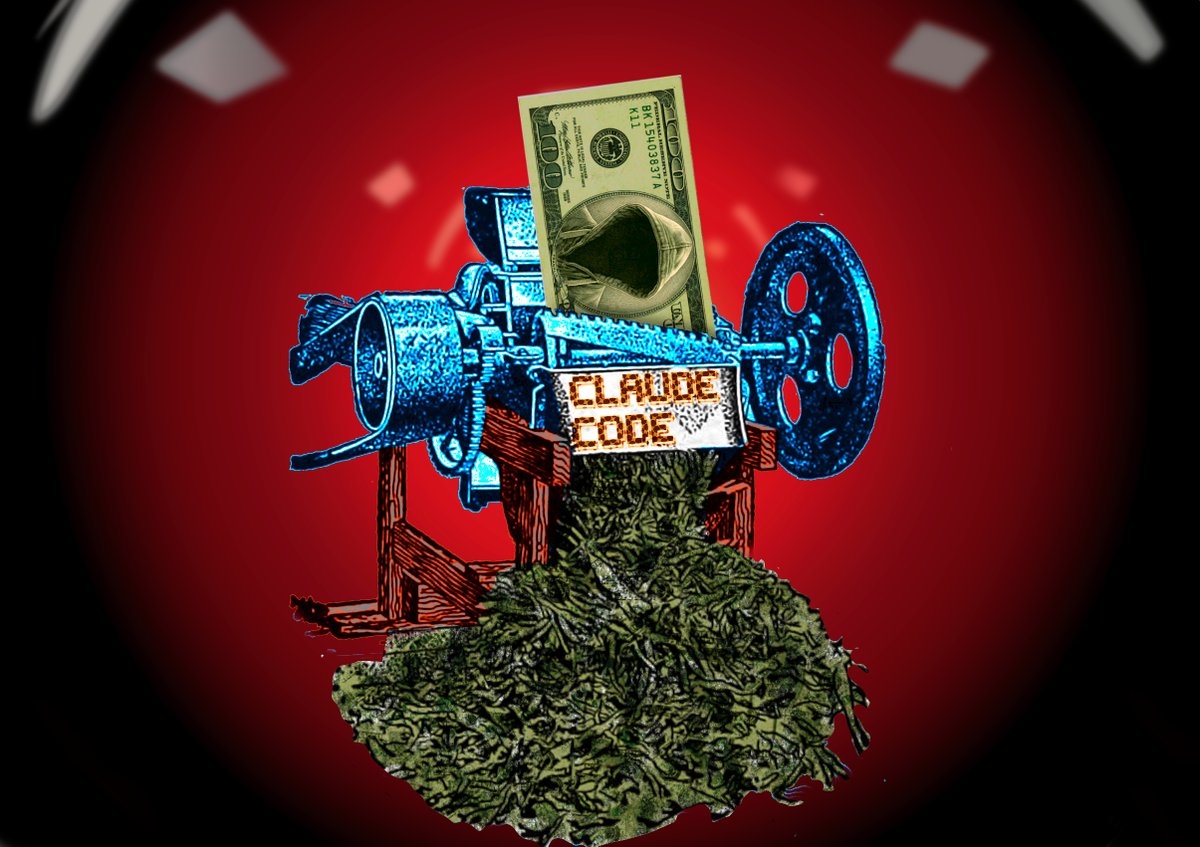Inequality requires narrative stabilizers. When you have too little and someone else has more than they can possibly use, simple logic dictates that you should take what they have.
1/
1/

The forbearance exercised by the many when it comes to the wealth of the few isn't down to guards or laws - rather, the laws and the guards are effective because of the STORY, the story of why this is fair, even inevitable.
2/
2/
Think of the story of monarchy and its relationship to the Church: the Church affirms that the monarch (and the aristocracy) was chosen by God ("dieu et mon droit") and the monarchy reciprocates by giving the Church moral and economic power within the kingdom.
3/
3/
Capitalism replaced the story of divine will with a story of a self-correcting complex system: humans are born and raised with a variety of aptitudes and tastes, and at any moment, historical exigencies dictate that some individuals are better suited than others to do well.
4/
4/
When it's railroad time, there are people who were born to oversee the laying of track and the coordination of rail networks: markets find those people, allocate capital to them, and allow them to mobilize that capital to produce shared prosperity for all of us.
5/
5/
They get a larger slice of the pie than the people who lay the tracks, but they also made the pie bigger - their wealth represents three goods:
I. The incentive to make us all better off,
II. a reward for doing so, and
III. proof they earned it.
6/
I. The incentive to make us all better off,
II. a reward for doing so, and
III. proof they earned it.
6/
Implicit in this theory is the idea that markets are elevating people based on their suitability to a time and circumstance, for the benefit of us all.
You didn't strike it rich because you just weren't the right person to lead in your time and place.
7/
You didn't strike it rich because you just weren't the right person to lead in your time and place.
7/
But because the right person DID strike it rich, your life - and the lives of the people you love - were all improved. Your kids got a better start, and they might turn out to be the right person in the right place when they grow up.
8/
8/
That's the true significance of rags-to-riches: not that anyone can strike it rich, but that the people who did strike it rich deserved it, and anything you do to stop them will make YOU worse off, because they know how to maximize all our wellbeing in this moment.
9/
9/
But that's not actually how it works. As @PikettyLeMonde showed in CAPITAL IN THE 21ST CENTURY, the biggest predictor of whether you'll get rich is whether you're rich already:
memex.craphound.com/2014/06/24/tho…
10/
memex.craphound.com/2014/06/24/tho…
10/
Markets reward capital at a higher rate than they reward growth. Bill Gates founded the most successful company in world history, but made less money from it than L'Oreal heiress (and useless parasite) Liliane Bettencourt made over the same period.
11/
11/
But then Gates retired and became an investor - someone who allocated capital to people who did things, rather than doing things himself. And almost immediately, his fortune grew larger than either Bettencourt's or Gates-as-founder's had.
12/
12/
All other things being equal, markets allocate capital to people who have capital, not people who have ideas that will make us all better off, and so the story begins to break down. The tale of meritocracy is hard to credit when the richest people started off rich.
13/
13/
If that's a meritocracy, then it's a HEREDITARY meritocracy, an idea straight out of eugenics. In a hereditary meritocracy, markets don't serve to locate people with the best ideas for this moment and place - rather, they locate people with the best blood.
14/
14/
Think of how many times we heard Trump boast about his "good blood." Capitalism went full circle, becoming a new form of monarchism, where the hereditarily wealthy assert their right to rule by dint of the divine scripture of neoliberal economists who assure us all is well.
15/
15/
But being born rich doesn't make you a good capital allocator, it makes you a useless parasite. Some might escape the prison of birth to parasitehood, but they don't have to - you can be Donald Trump, or Don Jr, and still amass millions.
16/
16/
When our capital allocations are dominated by plutes, we end up in a society where evidence-based policy can only be made if it doesn't gore a plute's ox, and the plutes own all the oxen. So we end up with lethal healthcare, agriculture, climate and other policies.
17/
17/
We see the evidence of this daily, in headlines like "Inadequate healthcare has killed more Americans than Covid":
"The US trailed the rest of the advanced world in life expectancy since the 1980s... it's 3.4 years shorter than other G7 countries."
qz.com/1971415/poor-l…
18/
"The US trailed the rest of the advanced world in life expectancy since the 1980s... it's 3.4 years shorter than other G7 countries."
qz.com/1971415/poor-l…
18/
Death and privation chip away at the narrative of beneficial inequality, a system that elevates those who do the best for us all. I think we're at an inflection point now, as the storylines that started with Occupy are proven out by the pandemic and leap to the mainstream.
19/
19/
How else to explain @TIME headlines like "The Top 1% of Americans Have Taken $50 Trillion From the Bottom 90%—And That's Made the U.S. Less Secure"?
time.com/5888024/50-tri…
20/
time.com/5888024/50-tri…
20/
The article reports on a @RANDCorporation paper that estimates the wealth of the bottom 90% if American wealth distribution had held steady at the postwar levels, the most equal America had been since manumission.
rand.org/pubs/working_p…
21/
rand.org/pubs/working_p…
21/
It traces the real consequences of this inequality - the health and lifespan difference, the political instability, the mounting budget for guard labor to restabilize a system made untenable by the near-universal breakdown in a belief in its fairness.
22/
22/
"Are you a typical Black man earning $35,000 a year? You are being paid at least $26,000 a year less than you would have had income distributions held constant."
23/
23/
"Are you a college-educated, prime-aged, full-time worker earning $72,000? Depending on the inflation index used (PCE or CPI, respectively), rising inequality is costing you between $48,000 and $63,000 a year."
24/
24/
Systems are stabilized by law and the force of the state, but these are rounding errors compared to the stability imparted by narrative, the consensus that things are fair. Once you lose that, no amount of guard labor can keep it all from toppling over.
eof/
eof/
ETA: if you'd like to read or share this thread as a blog post, here's a copy on my site pluralistic.net, which has no trackers, ads or surveillance.
pluralistic.net/2021/02/13/dat…
pluralistic.net/2021/02/13/dat…
• • •
Missing some Tweet in this thread? You can try to
force a refresh










